
Mauri Pacific was a short-lived political party in New Zealand. It was formed in 1998 by five former members of the New Zealand First party. It has often been described as a Māori party. Officially, Mauri Pacific was a multiculturalist party, welcoming anyone who supported racial and cultural harmony. Three of its five MPs were Māori, and two were Pākehā.

Sir Āpirana Turupa Ngata was a prominent New Zealand statesman. He has often been described as the foremost Māori politician to have served in parliament in the mid-20th century, and is also known for his work in promoting and protecting Māori culture and language. His legacy is one of the most prominent of any New Zealand leader in the 20th century, and is commemorated by his depiction on the fifty dollar note.
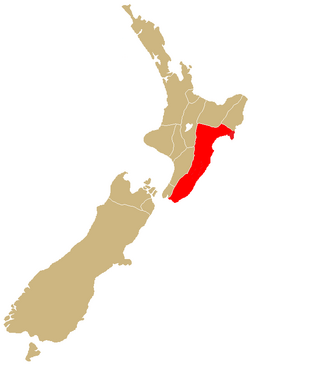
Ngāti Kahungunu is a Māori iwi located along the eastern coast of the North Island of New Zealand. The iwi is traditionally centred in the Hawke's Bay and Wairārapa regions. The Kahungunu iwi also comprises 86 hapū (sub-tribes) and 90 marae.
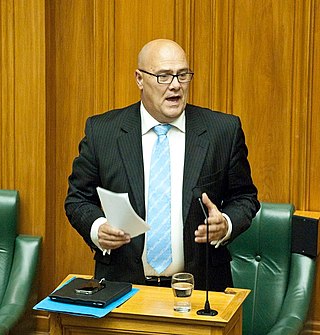
Raymond Tau Henare is a former New Zealand Māori parliamentarian. In representing three different political parties in parliament—New Zealand First, Mauri Pacific and the National Party—Henare served as a Member of Parliament (MP) from 1993 to 1999 and from 2005 to 2014.
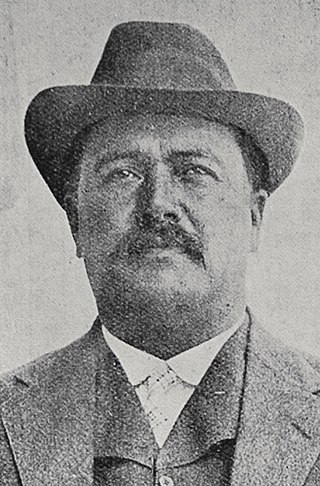
Taurekareka "Tau" Hēnare was a Māori member of the New Zealand Parliament from 1914 to 1938, sitting for the Reform Party for most of that time, until it merged with the United Party to form the National Party in 1936.
The Tight Five was a nickname given to the five Māori MPs elected to the New Zealand Parliament in 1996 from the centrist/populist New Zealand First party.
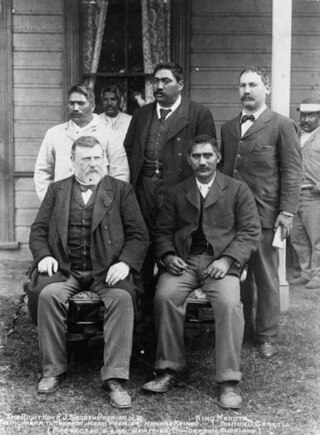
Henare Kaihau was a New Zealand Māori politician, serving as Member of the House of Representatives for the Western Maori electorate.

Te Tai Tokerau is a New Zealand parliamentary Māori electorate that was created out of the Northern Maori electorate ahead of the first Mixed Member Proportional (MMP) election in 1996. It was held first by Tau Henare representing New Zealand First for one term, and then Dover Samuels of the Labour Party for two terms. From 2005 to 2014, it was held by MP Hone Harawira. Initially a member of the Māori Party, Harawira resigned from both the party and then Parliament, causing the 2011 by-election. He was returned under the Mana Party banner in July 2011 and confirmed at the November 2011 general election. In the 2014 election, he was beaten by Labour's Kelvin Davis, ending the representation of the Mana Party in Parliament.
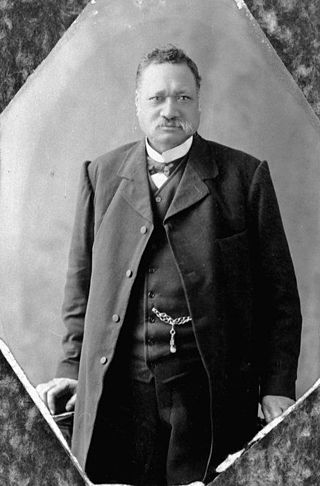
Henare Tomoana was a prominent Māori leader and politician from the Hawke's Bay area in the North Island, New Zealand. He was of Ngāti Kahungunu and Ngāti Te Whatu-i-Apiti tribal lineage. In 1879 he was elected to the New Zealand Parliament for the Eastern Maori electorate, and in 1898 was appointed to the New Zealand Legislative Council. He was a convenor of Te Kotahitanga, the movement for an independent Māori Parliament.

Tāmaki Makaurau is a New Zealand parliamentary Māori electorate returning one Member of Parliament to the New Zealand House of Representatives. It was first formed for the 2002 election. The electorate covers central and southern Auckland, and southern parts of western Auckland. It derives its name from the Māori-language name for Auckland; Makaurau is a descriptive epithet referring to the value and desirability of the land.
Southern Maori was one of New Zealand's four original parliamentary Māori electorates established in 1868, along with Eastern Maori, Western Maori and Eastern Maori. In 1996, with the introduction of MMP, the Maori electorates were updated, and Southern Maori was replaced with the Te Tai Tonga and Te Puku O Te Whenua electorates.
Western Maori was one of New Zealand's four original parliamentary Māori electorates established in 1868, along with Northern Maori, Eastern Maori and Southern Maori. In 1996, with the introduction of MMP, the Maori electorates were updated, and Western Maori was replaced with the Te Tai Hauāuru and Te Puku O Te Whenua electorates.
Northern Maori was one of New Zealand's four original parliamentary Māori electorates established in 1868, along with Eastern Maori, Western Maori and Southern Maori. In 1996, with the introduction of MMP, the Maori electorates were updated, and Northern Maori was replaced with the Te Tai Tokerau electorate.

Karaitiana Takamoana was a Māori chief of Ngāti Kahungunu, and a New Zealand Member of Parliament for the Eastern Maori electorate.
Henare Matua (c.1838–1894) was a New Zealand tribal leader, reformer and politician. Of Māori descent, he identified with the Ngati Kahungunu iwi. He was born in Nukutaurua, Hawke's Bay, New Zealand.

Sir James Clendon Tau Hēnare, was a New Zealand tribal leader, military officer, farmer and community leader. He fought for four years with the Māori Battalion during the Second World War, was wounded at El Alamein, and with the rank of lieutenant colonel was the battalion's commanding officer when the war ended. He stood for Parliament for the National Party in the Northern Maori electorate on several occasions: 1946, 1949, 1951, 1963, and the 1963 by-election.
The 1886 Western Maori by-election was a by-election held in the Western Maori electorate during the 9th New Zealand Parliament, on 23 December 1886. The by-election was caused by the death of the incumbent, Te Puke Te Ao, and was won by Hoani Taipua.

The Northern Maori by-election of 1963 was a by-election for the electorate of Northern Maori on 16 March 1963 during the 33rd New Zealand Parliament. The by-election resulted from the death of the previous member Tapihana Paikea on 7 January 1963. It was held the same day as the Otahuhu by-election.

Peeni Ereatara Gladwyn Henare is a New Zealand Labour Party politician who has been a member of the New Zealand parliament since the 2014 general election. Henare held the Tāmaki Makaurau Māori electorate since 2014 before being defeated by Te Pāti Māori's Takutai Tarsh Kemp in the 2023 general election.
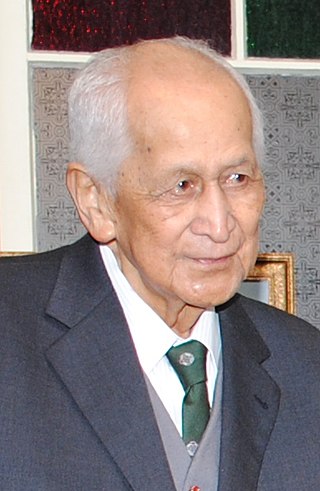
Sir Hēnare Kōhere Ngata was a Māori leader and accountant. A prisoner of war in Germany after his capture in Greece, he returned to New Zealand to finish his university studies and became an accountant. He held directorships and chaired boards in the Gisborne Region. He was particularly knowledgeable about Māori land issues and became a forceful advocate and legal expert. His alma mater, Victoria University of Wellington, awarded him an honorary doctorate (LLD) for his legal knowledge in 1979. Ngata was knighted in 1982 for services to the Māori people. He tried to follow his father, Āpirana Ngata, into politics but was unsuccessful when he stood in the 1969 general election.













